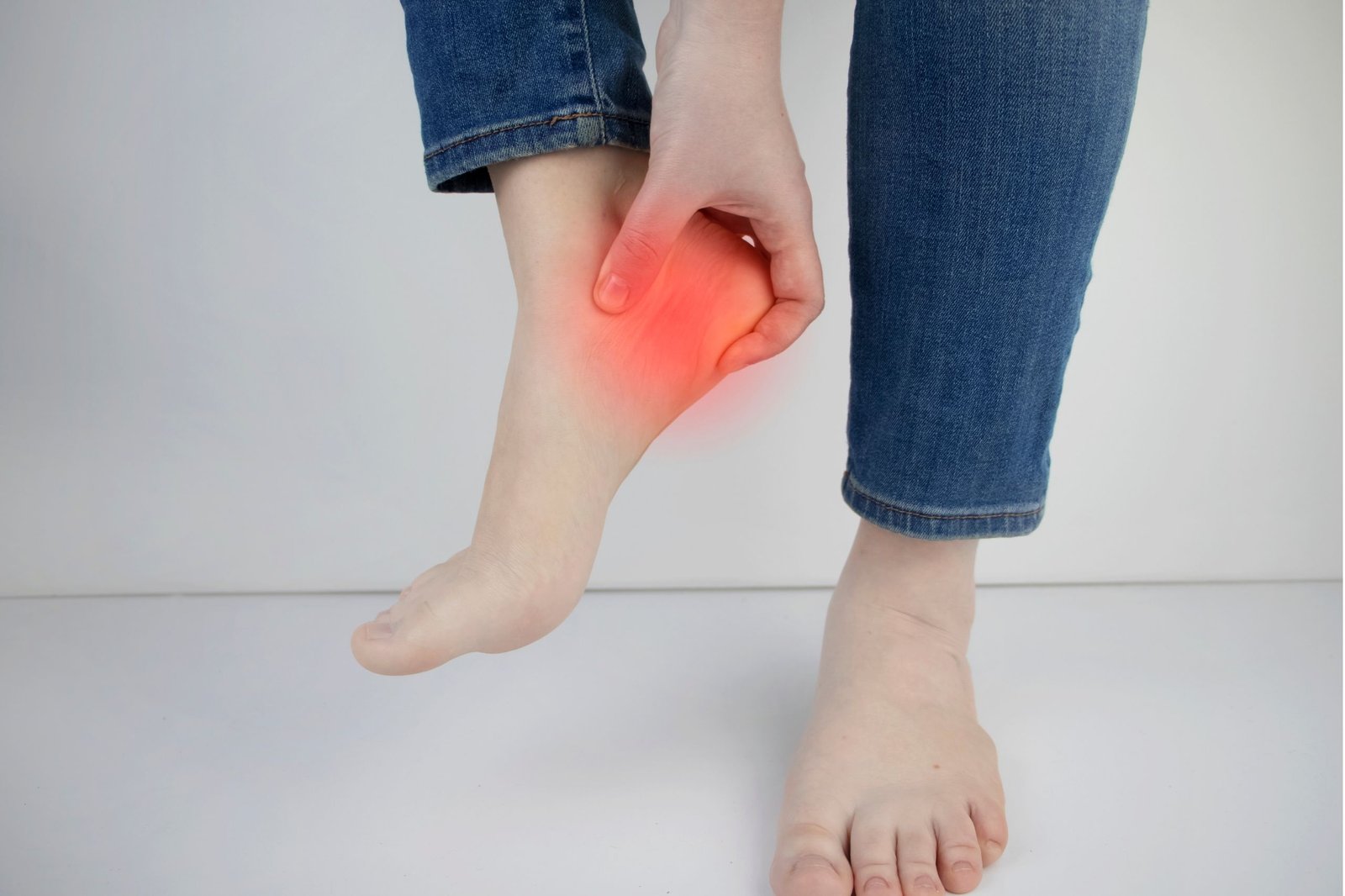
Brief Description
Heel pain is a frequent issue, often characterized by sharp or dull pain in the bottom or back of the heel. It can be particularly painful in the morning or after long periods of standing. The most common causes include plantar fasciitis, inflammation of the connective tissue under the foot, Achilles tendonitis, or excessive strain from activities like running or improper footwear. This condition is commonly seen in middle-aged or elderly individuals with Qi deficiency, those who stand for long periods, and people with sports injuries.
Common Misconceptions
TCM Diagnosis
Typical Tongue
Typical Pulse
If heel pain is caused by Kidney Qi deficiency, the pulse may present as deep and weak, or there may be an insufficiency in the Chi pulse.
TCM Pathogenesis
Most heel pain is associated with the Bladder Meridian (Foot Taiyang) and the Kidney Meridian (Foot Shaoyin). On one hand, the pain may be due to meridian blockage or a deficiency in Kidney Qi, commonly seen in the elderly or middle-aged individuals with weak constitutions. Another common cause is local blood stasis and Qi stagnation, which impairs circulation and leads to pain.
TCM Treatment
General Principle
Based on the pathogenesis, if heel pain is due to acute injury, local meridian rebalancing with acupuncture can provide effective relief. For cases caused by Qi deficiency, especially in the elderly, treatment should focus on the overall condition, using tonifying methods such as stimulating the Taixi point (Kidney 3). If blood stasis is the cause, treatment should focus on promoting Qi circulation and removing blood stasis to resolve the pain. Some cases of heel pain are related to being overweight. In such instances, weight loss should be considered, along with addressing the issue of phlegm-dampness obstructing the meridians, which requires holistic treatment for improvement.
Unique Therapies We Apply
Treatment Plan
Precaution
Summary
Heel pain is a common condition that can result from various factors such as acute injury, Qi deficiency, or blood stasis. Traditional Chinese Medicine (TCM) offers effective treatments by addressing both the local symptoms and underlying imbalances, especially when related to the Kidney and Bladder meridians. Early diagnosis and treatment are essential to prevent chronic issues. In cases of Kidney deficiency, tonifying treatments are needed for lasting results, while blood stasis requires promoting circulation. It's important to avoid common mistakes, such as prolonged standing or over-relying on supportive devices, as these can hinder recovery. With timely and appropriate treatment, TCM can provide significant relief and promote long-term healing.

The Traditional Chinese Medicine treatment approaches outlined above are derived from my clinical experience, and I acknowledge there may be areas not fully covered or that require further refinement over time.
This content is intended to provide a learning reference for professionals and enthusiasts in Traditional Chinese Medicine and to help patients gain a better understanding of their conditions and common misconceptions.
However, I must emphasize that this information does not constitute specific treatment guidance. All TCM treatments must be tailored to the individual through thorough diagnosis by a qualified practitioner. Non-professionals should not attempt self-treatment based on this information, as any treatment conducted without professional supervision may carry potential safety risks.
